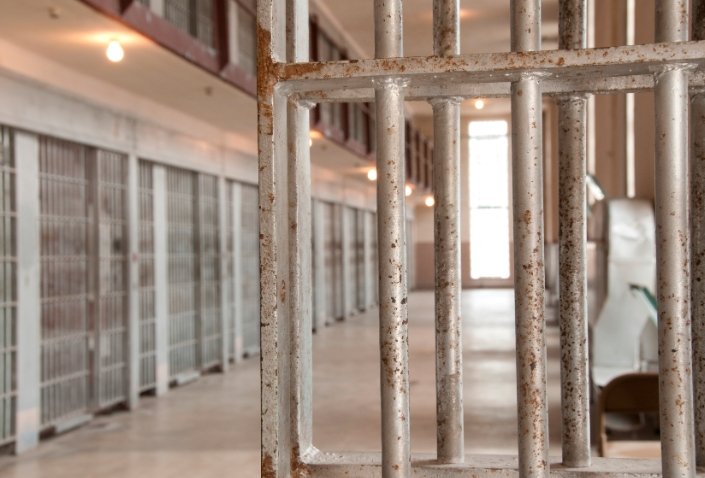Scotland’s prison system is facing a critical challenge with overcrowding, which is hindering efforts to rehabilitate inmates and maintain public safety. The number of inmates has been steadily rising, exacerbating the strain on already limited resources. This issue has been highlighted by the Chief Inspector of Prisons for Scotland, Wendy Sinclair-Gieben, who has called for urgent reforms to address the overcrowding crisis. The situation is further complicated by outdated facilities and staffing shortages, which are impacting the overall effectiveness of the prison system.
The Overcrowding Crisis
Scotland’s prisons are currently operating beyond their capacity, with the inmate population projected to exceed 8,000 in the coming year. This surge in numbers is partly due to the backlog of cases from the COVID-19 pandemic, which has led to an increase in remand prisoners. The overcrowding is not just a logistical issue; it has significant implications for the health and well-being of inmates. Overcrowded conditions can lead to increased tension and violence, making it difficult to maintain a safe environment for both inmates and staff.
The Chief Inspector has emphasized that the current situation is unsustainable. She has pointed out that the lack of space and resources makes it challenging to provide adequate rehabilitation programs. Without these programs, inmates are more likely to reoffend upon release, perpetuating a cycle of crime and incarceration. The overcrowding also puts a strain on prison staff, who are already dealing with high levels of stress and burnout.

Efforts to address the overcrowding have included the construction of new facilities, such as HMP Stirling, which replaces the outdated Cornton Vale. However, these measures are not enough to keep pace with the rising inmate population. The Chief Inspector has called for a comprehensive review of sentencing policies and the expansion of community-based alternatives to incarceration.
Impact on Rehabilitation and Public Safety
The overcrowding crisis is having a detrimental effect on rehabilitation efforts within Scotland’s prisons. Rehabilitation programs are essential for helping inmates develop the skills and mindset needed to reintegrate into society. However, the lack of space and resources means that many inmates do not have access to these programs. This not only hampers their chances of successful reintegration but also increases the likelihood of reoffending.
The Chief Inspector has highlighted the need for a more holistic approach to rehabilitation. This includes providing inmates with access to education, vocational training, and mental health support. However, the current overcrowded conditions make it difficult to implement these programs effectively. The focus on managing the sheer number of inmates often takes precedence over providing meaningful rehabilitation opportunities.
Public safety is also at risk due to the overcrowding crisis. When inmates are released without having received adequate rehabilitation, they are more likely to reoffend, posing a threat to the community. The Chief Inspector has warned that the high rate of recidivism is a direct consequence of the overcrowded and under-resourced prison system. Addressing this issue requires a shift in focus from punitive measures to rehabilitation and support.
Calls for Reform and Future Outlook
There is a growing consensus among experts and policymakers that urgent reforms are needed to address the overcrowding crisis in Scotland’s prisons. The Chief Inspector has called for a review of sentencing policies to reduce the number of people being sent to prison for non-violent offenses. She has also advocated for the expansion of community-based alternatives, such as electronic monitoring and restorative justice programs.
The Scottish government has acknowledged the need for reform and has introduced measures aimed at reducing the prison population. These include the introduction of new community custody units and the construction of modern facilities. However, the Chief Inspector has stressed that more needs to be done to address the root causes of overcrowding and ensure that inmates receive the support they need to reintegrate into society.
Looking ahead, the future of Scotland’s prison system will depend on the implementation of comprehensive reforms. This includes not only addressing the immediate issue of overcrowding but also investing in rehabilitation programs and support services. By taking a more holistic approach, Scotland can create a prison system that not only punishes but also rehabilitates, ultimately leading to a safer and more just society.


















